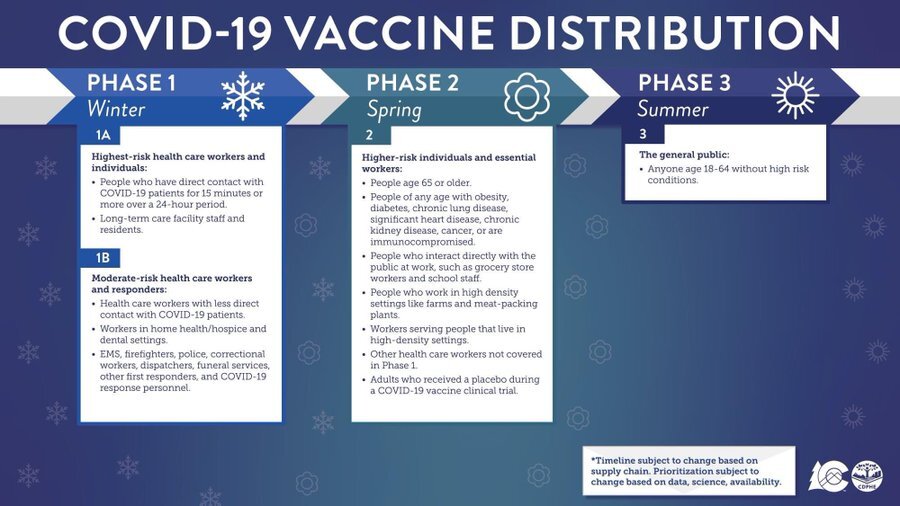First dose of COVID-19 vaccine arrives in Colorado

DENVER — The first doses of the approved Pfizer COVID-19 vaccine arrived in Colorado the morning of Monday, December 14, a historic milestone in the state’s long battle against the coronavirus pandemic.
“This is a triumph of modern science,” Polis said in a video Monday morning, referencing the speed at which the Pfizer vaccine was developed and approved. “This vaccine, once it’s widely distributed, will end this pandemic.”
When a FedEx delivery person arrived at the Colorado Department of Public Health and Environment (CDPHE) State Lab with the vaccine, Polis asked if he had to sign for the historic package. “You bet,” the FedEx worker said.
The first box of @pfizer vaccine received by the state #COVID19Colorado pic.twitter.com/MtlJMCryY8
— CO - Emergency Mgmt (@COEmergency) December 14, 2020
“I’ve been waiting to do this signature for nine months,” said Polis, who was joined by state epidemiologist Dr. Rachel Herlihy.
The initial shipment to Colorado includes between 46,000 and 47,000 doses of the Pfizer vaccine. Because Colorado makes up about 1.7% of the country’s population, the state will receive 1.7% of the available vaccine doses.
According to Colorado Public Radio, health care workers in Fort Collins will be among the first people to receive the Pfizer vaccine in Colorado.
Polis urged hospitals to administer the vaccine within 72 hours of receiving the initial shipments. “We need to be ready to hit the ground running,” Polis wrote in a letter to Colorado doctors. “Our ability to quickly vaccinate prioritized populations and report those doses as administered to the Colorado Immunization Information System is paramount to Colorado’s ability to receive future allocations of COVID vaccine and end this public health crisis.”
Next week, Colorado is expected to receive over 95,000 doses of the Moderna COVID-19 vaccine.
It will still be several months until the low-risk general population will be vaccinated against COVID-19. The state is operating under a three-phase distribution plan. The first phase, which will take place this winter, includes vaccinations for high-risk health care workers and individuals (and long-term care facility staff and residents), and then for moderate risk health care workers.
Phase two is scheduled for the spring. During this phase, “higher risk individuals and essential workers” will receive the vaccine. This includes, but is not limited to, people over the age of 65, workers serving people in high-density areas, and other health care workers not vaccinated in phase one.

The healthy, low-risk general population should not expect to be vaccinated until the summer, according to state public health experts. This will take place in phase three, in which “anyone aged 18-64 without high risk conditions” can get a vaccine. More information is available here.
Because so few children have been part of the vaccine clinical trials, the vaccination plan only accounts for people 18 and older for now.
Related story:
